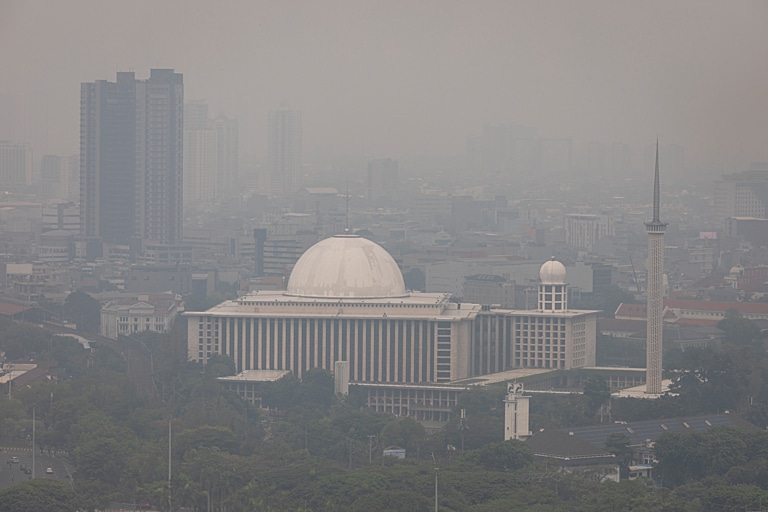Climate change poses an urgent threat to global public health, amplifying existing humanitarian crises and significantly affecting human well-being. Urgent action is imperative to mitigate the health consequences of climate change, including reducing carbon emissions, strengthening health systems, and promoting health equity. Failure to act swiftly will lead to further loss of life and hinder progress in global health and development.
—
Climate and Health
According to the World Health Organization (WHO), the frequency and severity of climate-related disasters, ranging from heatwaves to extreme weather events, are increasing, resulting in higher mortality rates and the spread of diseases.
A 2024 study published in PLOS Climate highlights the link between rising temperatures and reduced life expectancy. The study reveals that for every degree Celsius increase in temperature, life expectancy declines, on average, by approximately 0.44 years. This underscores the significant health risks associated with global warming, with vulnerable populations, particularly marginalized and low-income communities, and those with limited access to healthcare, bearing the brunt of these impacts. Furthermore, the study challenges the notion that economic development can mitigate the health impacts of climate change, suggesting that climate variables affect health outcomes independently of economic growth.
Extreme Temperatures and Pollution Impact Human Health
A A 2023 study highlights the alarming correlation between extreme temperatures and over half a million stroke deaths annually, a trend that has been globally increasing since 1990. Vulnerability to these temperature-related strokes is found to be higher in countries with a lower Socio-Demographic Index (SDI). The study identifies Western Sub-Saharan Africa, South Asia, Southeast Asia, North Africa and the Middle East as regions experiencing the most significant impact from high temperature-related strokes, with projected rises in stroke deaths linked to climate change-induced temperature increases.
The severity of this health crisis is further exacerbated by existing environmental challenges, particularly air pollution. A recent report sheds light on the impact of air pollution on life expectancy in South Asia, which is home to four of the five most polluted countries globally. Residents in Bangladesh, India, Nepal, and Pakistan face an average loss of five years of life due to air pollution, with particulate pollution increasing by 9.7% from 2013 to 2021. This rise correlates with an additional six months’ reduction in life expectancy for inhabitants of the region.
Addressing these interconnected health challenges requires urgent global action and multi-level interventions to reduce emissions and improve air quality.
You might also like: 10 Facts About Air Pollution You Should Know About
The Intersection of Economic Growth and Public Health
A collaborative paper between US universities and the National Bureau of Economic Research published in 2016 found evidence from 200 years of data that challenges the conventional notion of economic growth as a marker of progress. The paper highlights the adverse effects of economic growth on public health and underscores the need to prioritize public health in economic policymaking. The study indicates increased mortality rates during economic upswings due to heightened pollution levels associated with industrial activity. Children, especially vulnerable, are disproportionately affected by environmental degradation.
Managing the adverse health effects of economic growth is crucial, with countries with robust social safety nets better equipped to mitigate health risks associated with economic fluctuations. Addressing inequality is also paramount, as marginalized populations often bear the brunt of the negative health impacts of economic growth.
Where Do We Go From Here?
Despite the daunting challenges posed by climate change, there is cause for optimism.
The international community is increasingly recognizing the limitations of economic growth as a sole measure of progress and prosperity. Initiatives such as the May 2023 UN Secretary-General’s policy brief advocate for comprehensive wealth metrics that consider economic, social, and environmental well-being (find here a comprehensive summary by the IISD). This paradigm shift in policy-making prioritizes human well-being and planetary sustainability over narrow economic indicators.
Organizations like the World Health Organization (WHO) are taking decisive action to address the health impacts of climate change through strategies focusing on emissions reduction, resilient health systems, and health protection. Collaborative efforts, exemplified by partnerships like the Alliance for Transformative Action on Climate and Health (ATACH), demonstrate a collective commitment to addressing the intersection of climate change and health. Additionally, the global initiative to achieve net-zero emissions offers hope for a sustainable future, with over 140 countries, 9,000 companies, 1,000 cities, 1,000 educational institutions, and 600 financial institutions uniting to reach this goal.
Although current commitments may not fully meet the requirements, the increasing awareness and collaboration among governments, businesses, and civil society demonstrate a step towards a more environmentally responsible and equitable future.
Conclusion
Climate change is a formidable challenge to global public health and necessitates urgent action. Recognizing the interdependence of economic, social, and environmental well-being and prioritizing health equity and sustainability enables the world to comprehend and address climate change more comprehensively and holistically. Through efforts at the international, national, and community levels, we can safeguard human lives and build a healthier, more resilient future for all.
Featured image: Aji Styawan/Climate Visuals



















